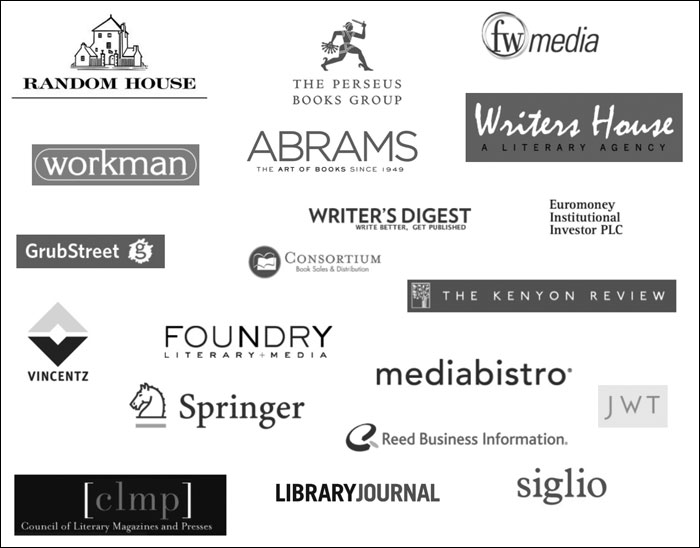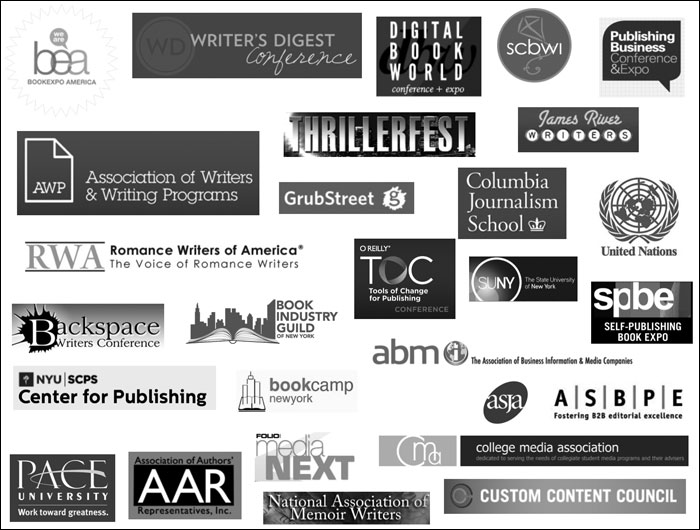Too often, people view the idea of “platform” as a stage for you yourself to stand on, one that positions you higher than others, from which you can publicize your message to a large, faceless audience.
When I saw author Chuck Wendig speak recently he said:
“Words such as PLATFORM don’t resonate with me because folks just want to write a good book. It’s not as if it is handed down to you from a platform, like Coke delivered it as a brand.”
While I have a deep respect for Chuck, that is not how I view what an author’s platform is, and today I want to explore why.
A platform is how you create new paths, new inspiration, new opportunities for others. And it is how your work does these things. Last week I experienced three platforms that did exactly this:
- I saw Seth Godin speak.
- I experienced the Creative Mornings meetup for the first time, hosted by Tina Roth Eisenberg.
- I took a tour of The High Line in New York City.
Each illustrated different ways that your platform is what you create in others, not just what you create for yourself. That platform is the myriad of ways that your books, your craft, your work has an effect in others. It is about what happens AFTER people read something you wrote.
Seth Godin
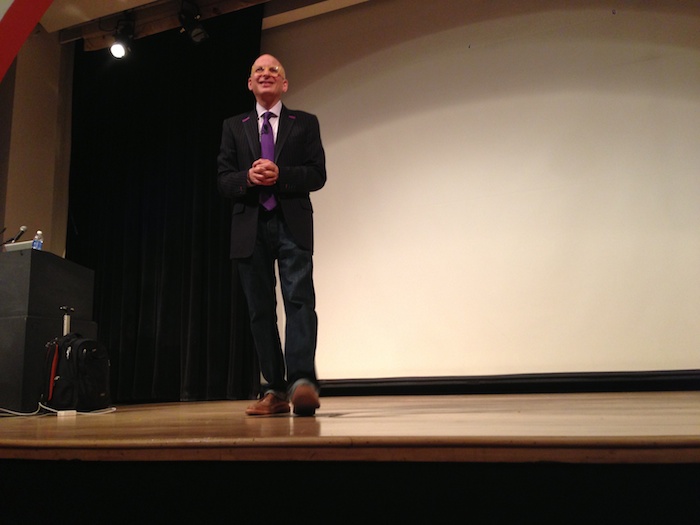
Seth is a wonderful speaker, and after years of reading his blogs, his blog, and even interviewing him myself, it was nice to see how his speaking style gelled with his larger platform.
What is Seth’s platform? Well, within it, he creates capacity in others. Sometimes he does that by inspiration, other times via practical processes to follow, creating products and services, still others by actually connecting one person to another.
In the talk, Seth described how your work is the heart of your platform. That when your work touches people, you are connected to them. He illustrated this by explaining how he came to be on the stage at that moment: he experienced the work of the event’s organizer Tina Roth Eisenberg, and through her work, felt connected to her.
He took it further and talked about the craft of platform, which is a concept core to my own work. Sharing your ideas, finding the right people that you will resonate with – that is the craft that Seth talked about. That you have to try ideas, understand who appreciates your work, and keep iterating.
You can see a video of Seth’s talk here.
Creative Mornings Meetup & Tina Roth Eisenberg
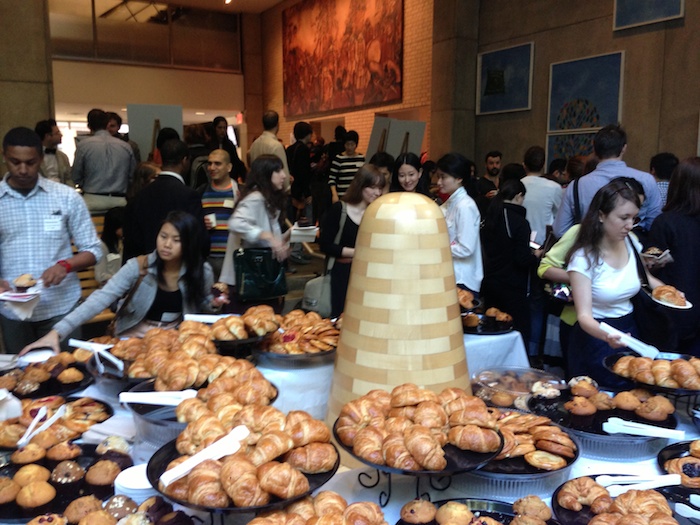
The event that Seth Spoke at is called Creative Mornings and is organized by Tina Roth Eisenberg and her team.
When you experience anything that Tina creates, you quickly realize that she connects people and empowers as the forefront of what she does. She also has a popular design blog, a shared workspace and two small startups.
The homepage for her shared workspace in Brooklyn is emblematic of this: below the header, the focus is entirely on the people working here and what they do.
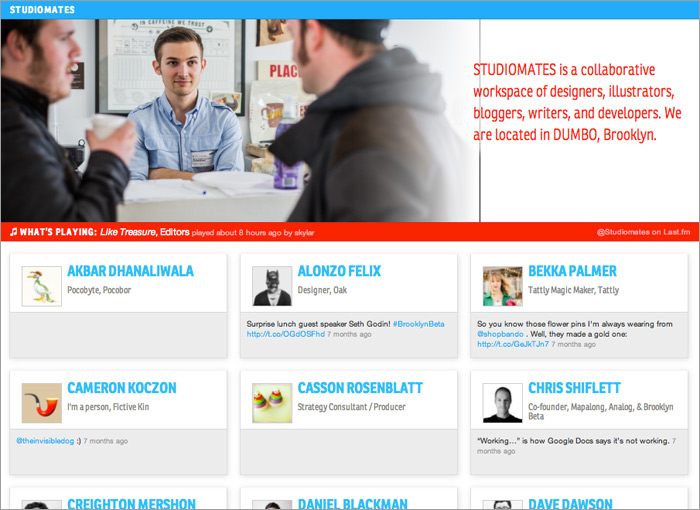
What is Tina’s platform? It is how she communicates, how she connects, how she earns trust. And she offers many ways into these experiences, from her writing, to in-person events, to products & services, and so much more. Anytime someone mentions Tina to me, it is always gushing with how giving and amazing she is. How she has opened new doors and made people feel connected.
The High Line
I took a guided tour of The High Line in New York City last week from a friend who lives in the area and has watched how this elevated park has changed entire neighborhoods. The High Line is a 1.5 mile public park that was created on top of an abandoned elevated railroad line that cuts through the west side of Manhattan.
Walking the park gives you a completely unique view of New York city. You walk between buildings two stories up, through buildings, under buildings, all within what feels like a bubble of nature.
Why does this matter AT ALL in an article talking about the platform that a writer or create builds? Because The High Line’s effect was so much greater than just opening a park. Yes, The High Line is a destination in and of itself, but it has created so much growth for others:
- Development of former industrial areas. Some of these projects are huge, almost literally building entire new neighborhoods from scratch. Others are new buildings, new museums.
- It connects and extends already established neighborhoods.
- As you walk through the path, you notice what seemed like dozens of gardeners. I can tell you from decades of experience in NYC, it is astounding to consider that there are all these people gardening in what was formerly an abandoned industrial train line.
- There are the obvious other jobs created with Friends of the High Line.
- But mostly, it is the feeling of possibility and connection that you get when you walk the High Line.
Some photos from my walk:



I want to end with a quote from Aaron Dignan:
“A platform requires people are building upon it, changing it and shaping it”
While he was mostly talking about web platforms (such as Google or Twitter), the same ethos applies to the platform you craft as a writer or creator.
These are just some of the reasons why I never consider the concept of platform to include a stage – a separation or hierarchy between the creator and an audience. Instead, I view it in the ways described above – how we find ways to connect that bring us together and create new capacities.
Thanks!
-Dan

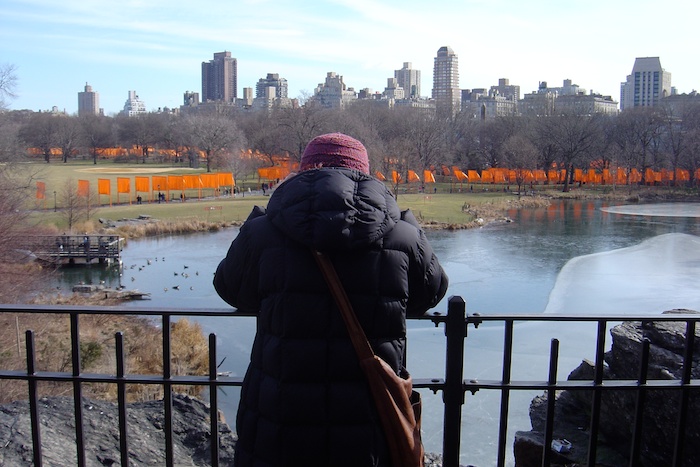
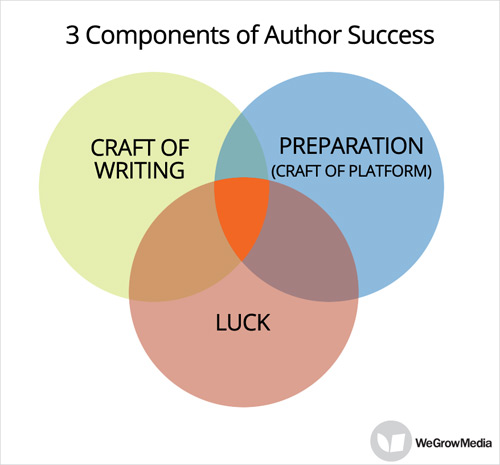
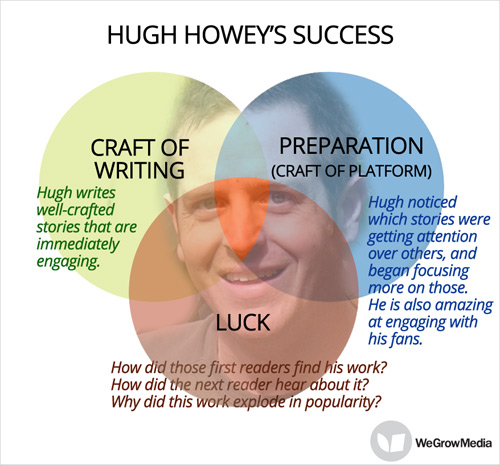
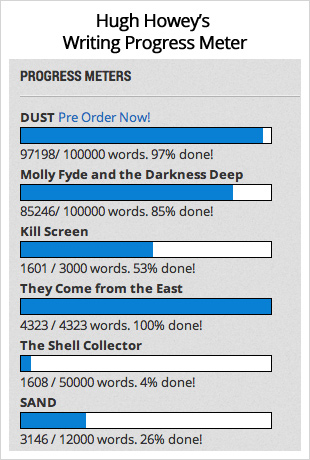 I do feel that being prepared and crafting one’s platform does help encourage luck from happening. For instance, too many writers:
I do feel that being prepared and crafting one’s platform does help encourage luck from happening. For instance, too many writers: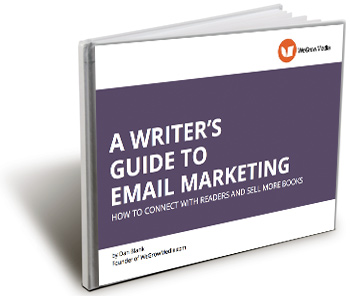
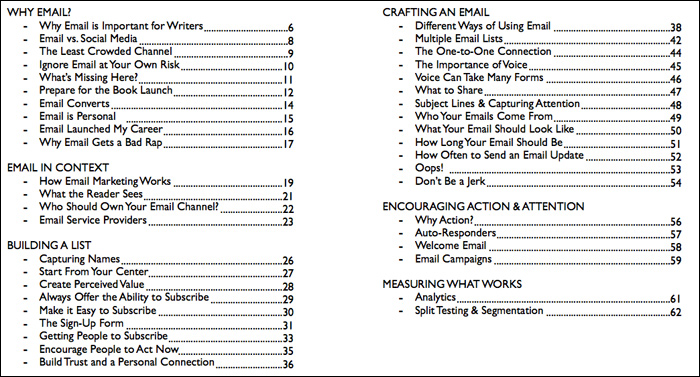
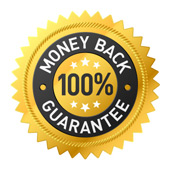 This 60+ page PDF ebook is guaranteed to supercharge your email marketing efforts. If you aren’t completely satisfied within 30 days, I am offering a 100% money-back guarantee. There is literally no risk.
This 60+ page PDF ebook is guaranteed to supercharge your email marketing efforts. If you aren’t completely satisfied within 30 days, I am offering a 100% money-back guarantee. There is literally no risk.
 My name is Dan Blank, and I help writers build their platforms, and work with publishers to grow their online communities. I have worked with hundreds of writers to help them develop the skills they need to build and engage their audiences. I have taught courses for Writer’s Digest and Mediabistro, and spoken at many of the major publishing and writing conferences. For my full background, please check out
My name is Dan Blank, and I help writers build their platforms, and work with publishers to grow their online communities. I have worked with hundreds of writers to help them develop the skills they need to build and engage their audiences. I have taught courses for Writer’s Digest and Mediabistro, and spoken at many of the major publishing and writing conferences. For my full background, please check out 